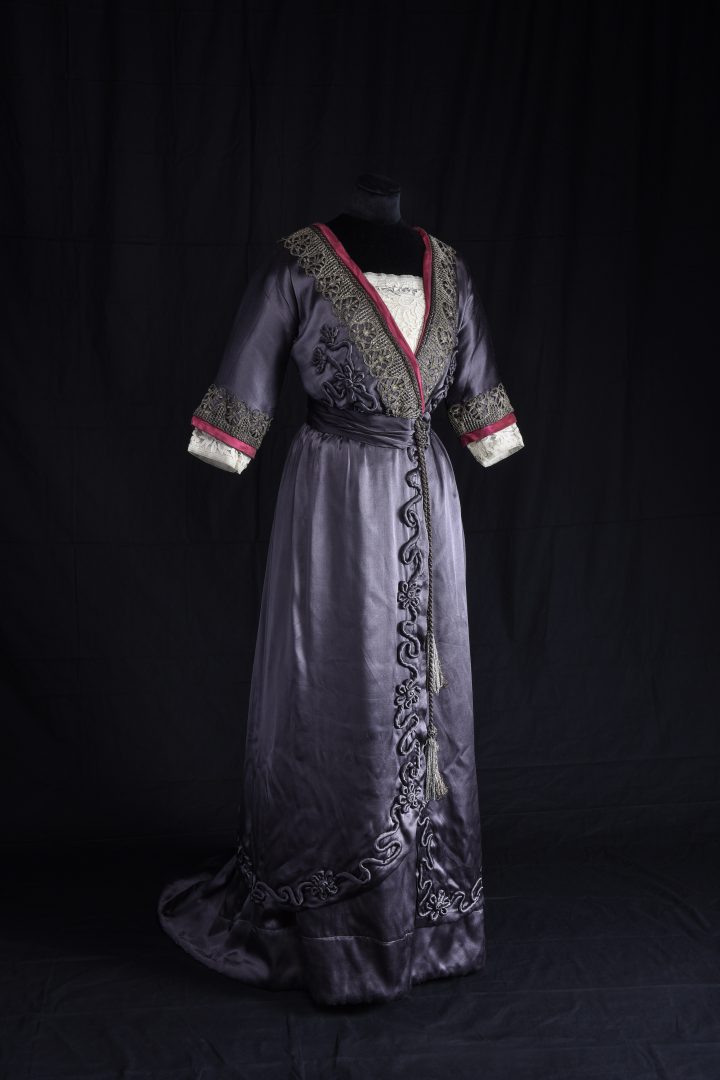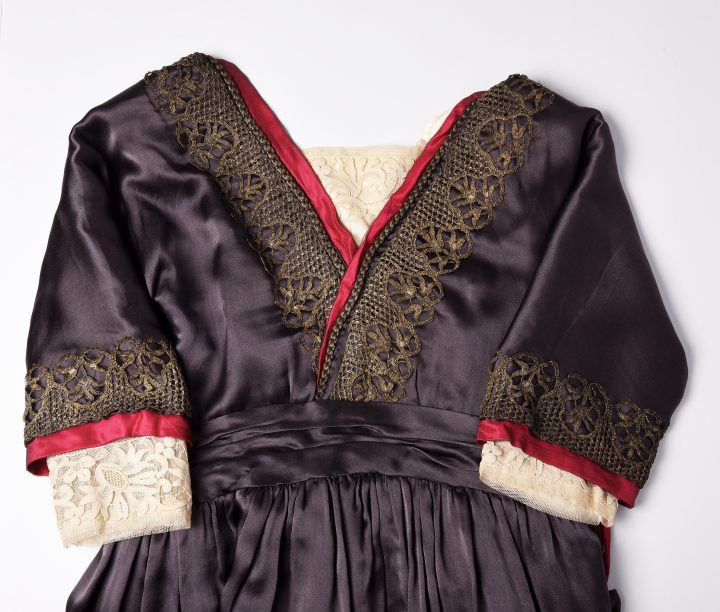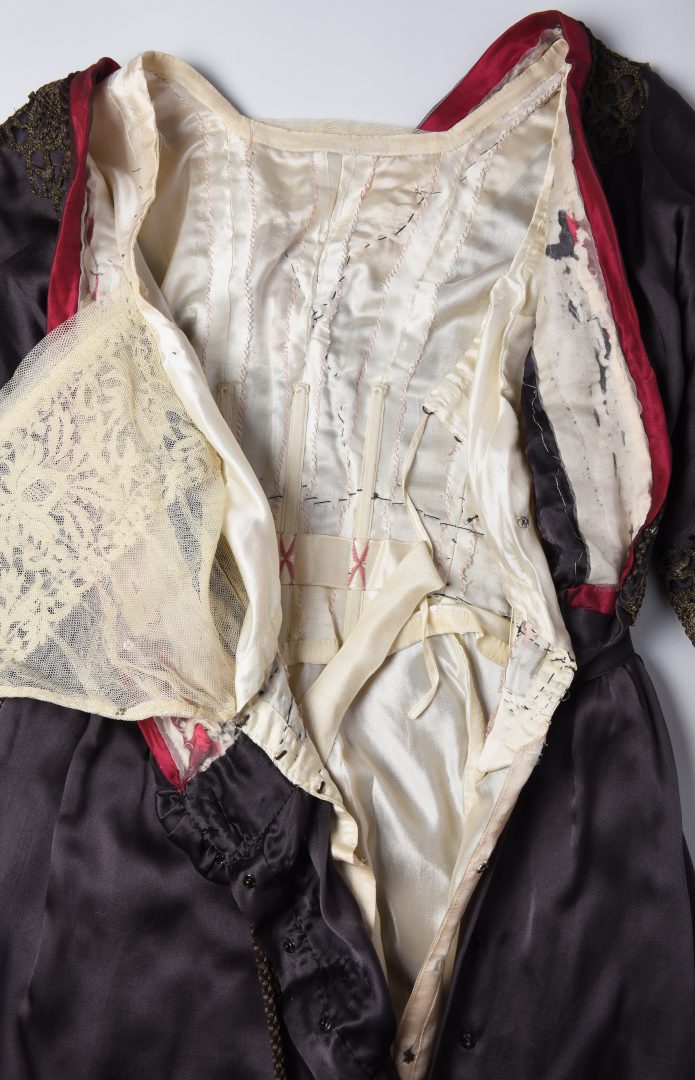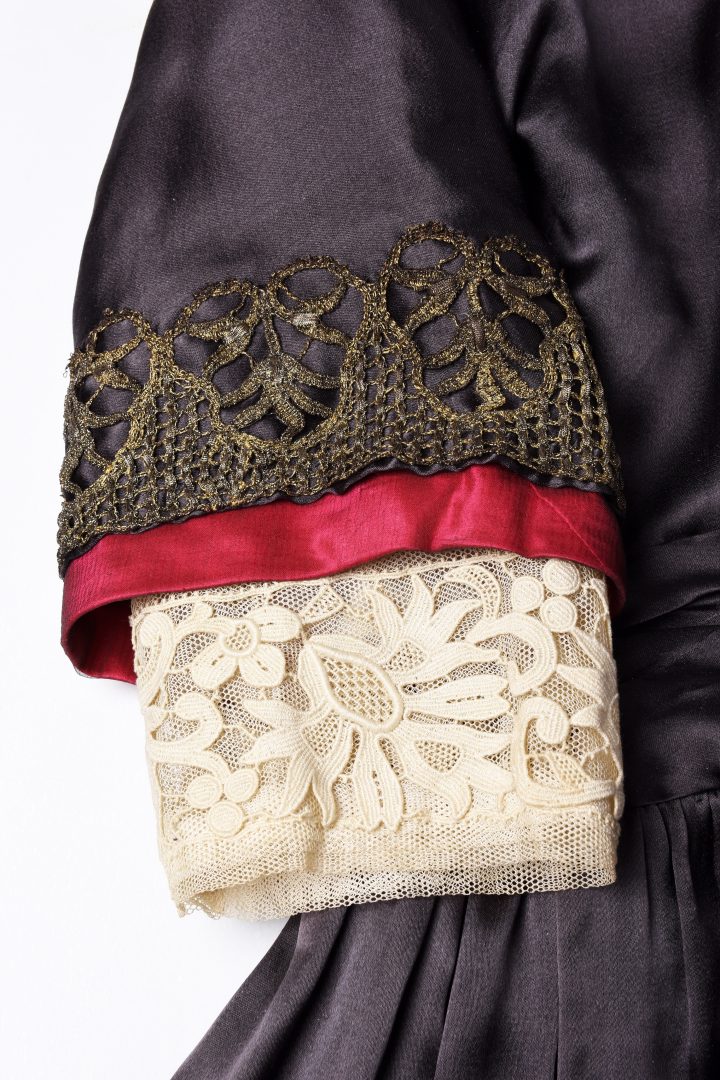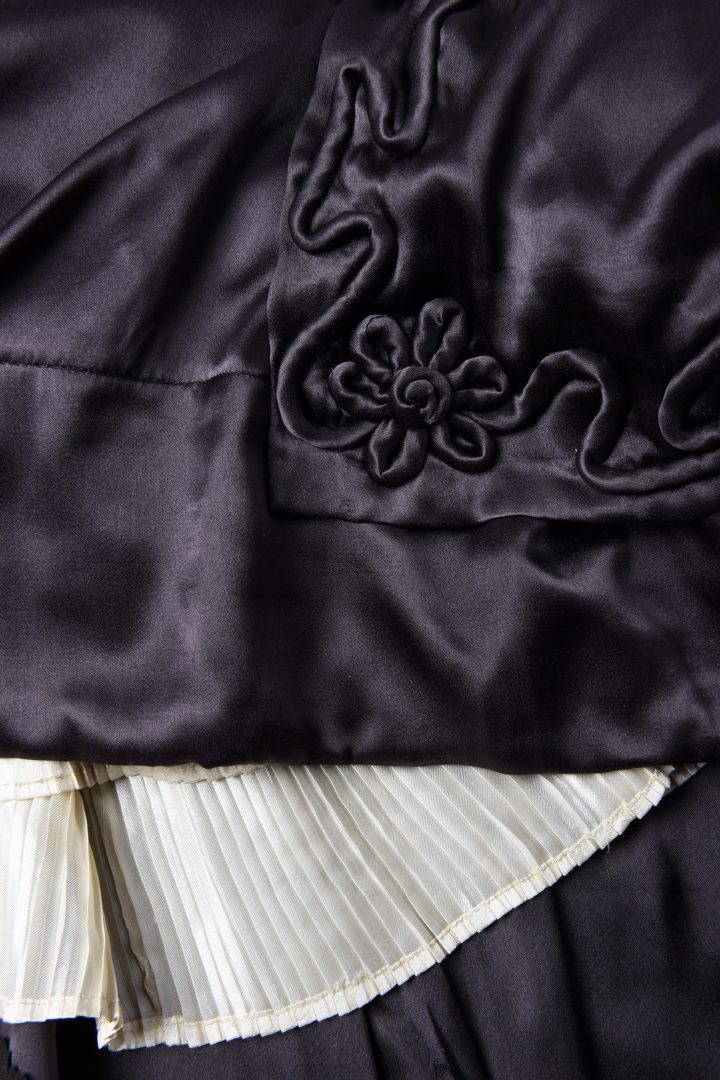-

-

The dress seen from behind. -
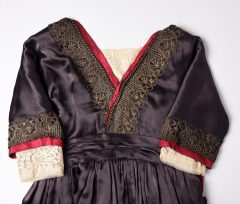
The bodice of the overgown is trimmed with red satin, silver lace and white lace. -

The lining with boning. -
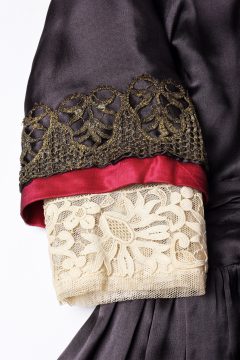
The sleeves are trimmed with silver lace, red satin and white lace. -
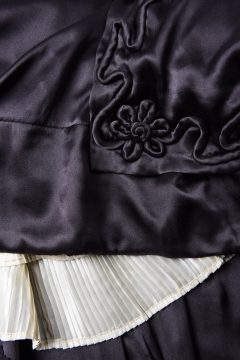
The skirt has a pleated lining.
Dress, 1915-1919
During this period, dresses often consisted of a shorter overgown worn on top of a longer skirt. The skirt was narrow and the neck was left bare.
The ideal was a body that was free to move. The corset was done away with. However, the corset-less fashion sometimes came under criticism. Having had the support of a corset for years, many women struggled to bear the weight of their own torso. Sometimes, elastic girdles were used, or, as seen here, metal boning was sewn into the lining of the garments.
A kimono-shaped overgown and skirt in grey silk satin. The overgown is trimmed with flower boughs made from satin tubes filled with wadding and red satin, silver and white lace. The dress was made in Dresden, Germany.
Material
Silk, metallic thread
Length
137 cm
Technique
Atlas, lace, tulle
Inventory number
KM 65258
